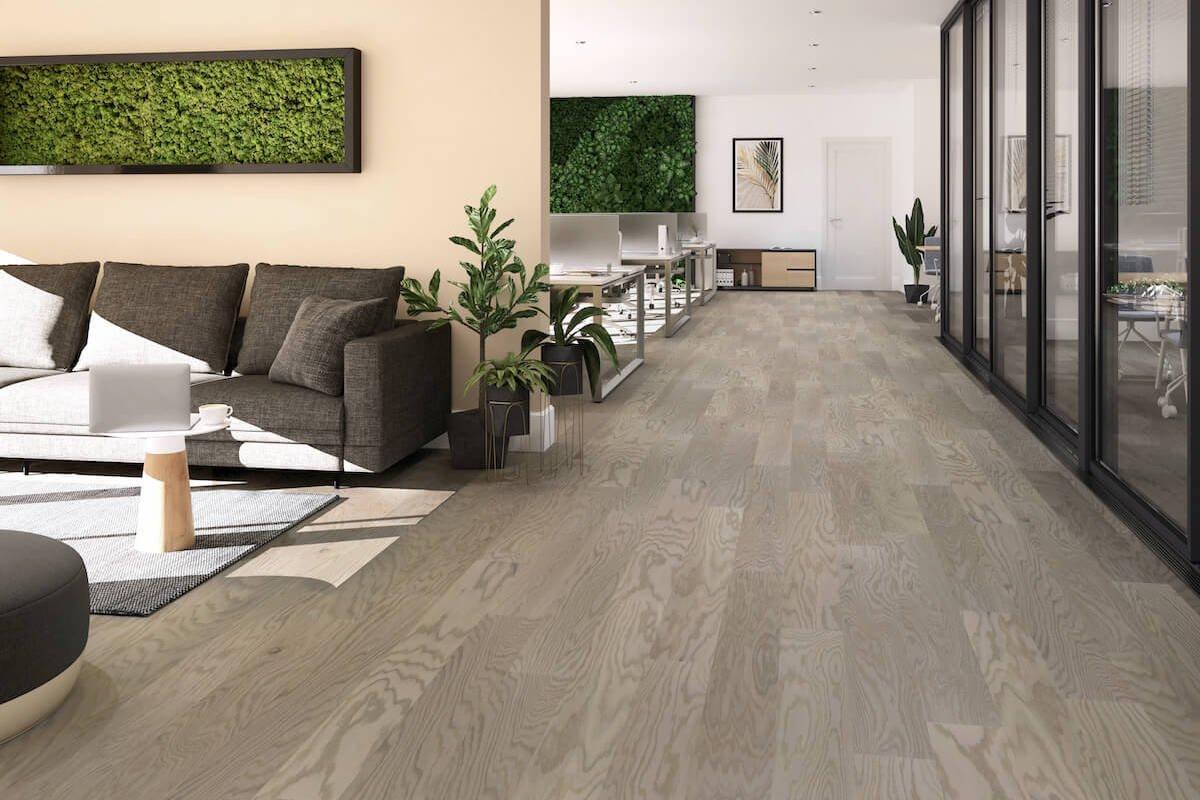Flooring Market by Application: Residential, Commercial, and Industrial Spaces

The global Flooring Market is witnessing a dynamic transformation, driven by diverse application needs across residential, commercial, and industrial sectors. Each application segment demands distinct material characteristics, design preferences, durability standards, and cost structures. As a result, flooring manufacturers, designers, and suppliers are tailoring their product lines to meet the specific needs of these spaces, fueling market growth and innovation worldwide.
This article delves into the application-based segmentation of the flooring market, highlighting the specific trends, demands, and opportunities within residential, commercial, and industrial spaces.
1. Residential Flooring: Comfort, Aesthetics, and Personalization
The residential segment represents the largest share of the flooring market, driven by rising housing demand, remodeling trends, and changing consumer lifestyles. Flooring in homes is no longer just functional—it plays a major role in interior design and comfort.
Key Trends:
-
Preference for warm and natural looks such as wood, laminate, and luxury vinyl planks (LVP) in living areas and bedrooms.
-
Ceramic and porcelain tiles are widely used in kitchens and bathrooms due to water resistance and ease of cleaning.
-
Carpet flooring remains popular in colder regions for insulation and comfort, especially in bedrooms and play areas.
-
Eco-conscious choices like bamboo, cork, and recycled wood are gaining popularity among sustainability-focused homeowners.
Growth Drivers:
-
Rising disposable incomes in developing countries.
-
Urbanization leading to high-rise apartment construction.
-
Increased focus on DIY-friendly and easy-to-install flooring products.
Challenges:
-
Price sensitivity in middle-income households.
-
Demand for low-maintenance but high-performance materials.
2. Commercial Flooring: Durability and Design for High-Traffic Areas
Commercial applications include office spaces, hospitality, retail stores, educational institutions, and healthcare facilities. This segment places a strong emphasis on aesthetics, durability, safety, and ease of maintenance.
Key Trends:
-
Luxury Vinyl Tile (LVT) is leading due to its stylish appearance, durability, and resistance to foot traffic.
-
Carpet tiles are favored in offices and conference rooms for their acoustic benefits and ease of replacement.
-
Stone, ceramic, and porcelain tiles are widely used in malls, hotels, and hospitals for their elegant look and long service life.
-
Resilient flooring solutions are being adopted in schools and healthcare settings where hygiene and safety are critical.
Growth Drivers:
-
Global expansion of retail and hospitality industries.
-
Increased spending on commercial real estate and public infrastructure.
-
Demand for corporate branding through custom flooring design.
Challenges:
-
Higher upfront investment and installation costs.
-
Frequent renovation needs due to wear and design updates.
3. Industrial Flooring: Performance, Safety, and Resistance
Industrial spaces such as factories, warehouses, logistics centers, and manufacturing plants require flooring solutions that can withstand heavy machinery, chemicals, abrasion, and extreme temperatures.
Key Trends:
-
Epoxy and polyurethane coatings are preferred for their chemical resistance, seamless finish, and load-bearing capabilities.
-
Concrete floors with surface treatments are common in warehouses and logistics facilities.
-
Anti-slip and anti-static flooring is increasingly installed in sectors like pharmaceuticals, food processing, and electronics manufacturing.
-
Modular interlocking floors are gaining traction for temporary and flexible industrial setups.
Growth Drivers:
-
Rapid industrialization in Asia-Pacific and Africa.
-
Rising investments in logistics and supply chain infrastructure.
-
Stringent workplace safety and hygiene regulations.
Challenges:
-
High installation complexity and downtime.
-
Need for regular maintenance and resurfacing in heavy-use areas.
Comparative Overview: Application-Based Flooring Needs
| Application | Key Priorities | Popular Materials | Challenges |
|---|---|---|---|
| Residential | Comfort, design, affordability | Wood, vinyl, laminate, carpet, tile | Price sensitivity, customization |
| Commercial | Durability, aesthetics, branding | LVT, carpet tiles, stone, tile | High traffic, maintenance frequency |
| Industrial | Strength, safety, performance | Epoxy, concrete, rubber, polyurethane | Harsh environment, installation cost |
Synergy and Cross-Influence Among Segments
Interestingly, innovation in one segment often influences another. For example:
-
The comfort and design innovations in residential flooring are being adapted for premium office spaces to enhance employee well-being.
-
The durability and safety features from industrial floors are now used in commercial kitchens and hospitals.
-
The rise of multi-use buildings—mixed-use developments combining living, working, and recreational areas—demands flooring that performs across all three categories.
Future Outlook
The flooring market is expected to continue its segmented expansion through 2030, with technology and customization at the forefront. Smart flooring with sensors, antimicrobial surfaces, and modular designs are gaining traction. Additionally, digital design tools allow homeowners and commercial designers to visualize and choose the most suitable flooring with greater precision.
Sustainability will play a defining role across all applications. Whether it's low-VOC vinyl for homes, recycled carpet tiles for offices, or green-certified industrial coatings, eco-conscious flooring solutions are likely to dominate future demand.
Conclusion
Segmenting the Flooring Market by application—residential, commercial, and industrial—offers a comprehensive understanding of the diverse and evolving needs that shape product innovation and market strategy. Each segment presents unique opportunities and challenges, pushing manufacturers to diversify offerings while maintaining quality, performance, and aesthetic appeal.
- Art
- Causes
- Crafts
- Dance
- Drinks
- Film
- Fitness
- Food
- Games
- Gardening
- Health
- Home
- Literature
- Music
- Networking
- Other
- Party
- Religion
- Shopping
- Sports
- Theater
- Wellness


